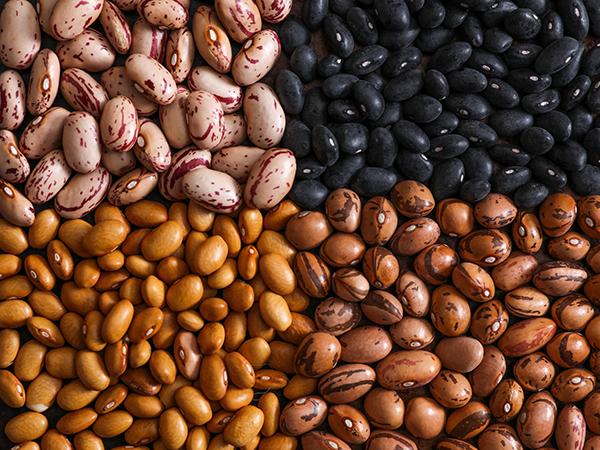Nutrition accounts for 60% of the importance of our health, of which protein is one of the ingredients that many people care about and consume a relatively large amount of each meal.
The importance of protein is undeniable, but whether there is a lot of protein is good or not, and for practitioners and ordinary people, how different.
Everyone knows that protein helps build muscle and increase muscle size after exercise, but if we consume too much, what are the harmful effects of protein on the body?
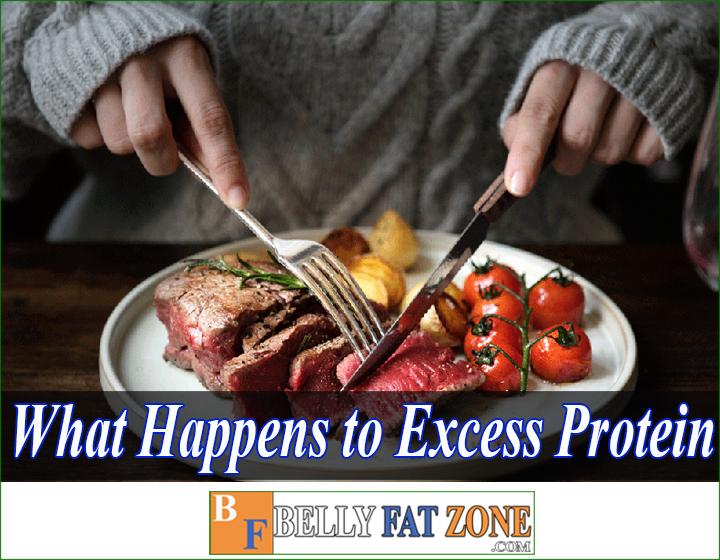
This article will help you learn about the harmful effects of protein overload that the body does not use up so that you have a way of dividing the appropriate amount of protein to ensure your body is not missing or excess protein.
Bodybuilders often have protein abuse to gain muscle fast. So what are the harmful effects of excess protein? Now BellyFatZone invites you to refer to this article together!
Read more: How to Increase Protein in Body Naturally?
What Is Protein in The Body?
Protein, also known as protein, is a group of substances not lacking in life. Proteins are chains of amino acids, including essential and non-essential amino acids.
It is a constituent of the cell and performs the cell's function, maintaining the life and functioning of the body.
For bodybuilders, protein is even more important because it is involved in muscle recovery and building. No matter how much you train without enough protein, your muscles will not grow.
But is it better to eat as much protein as possible, and is it okay to eat more protein?
Read more: Best Grass Fed Whey Protein.
The Happens to Excess Protein in The Body Are:
Consuming large amounts of any nutrient over a long period of time is associated with side effects. Everything will be best when used in moderation, not redundant, not missing.
You've probably heard many “rumors” about the consequences of excess protein. Among those rumors, there is right, it is wrong, there is no conclusion. We will analyze it together.
Weight gain
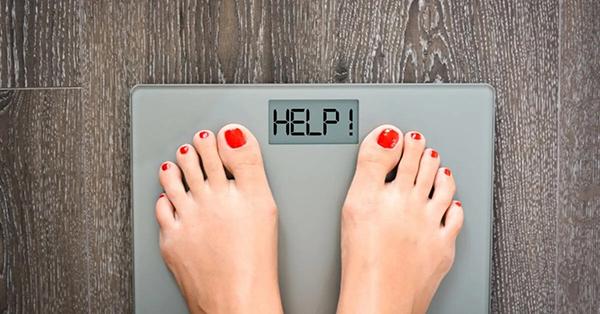
Eat a lot of protein is not fat? While a high-protein diet can help you lose weight, it's only when you don't eat the recommended amount. If you're getting too much protein, the bad news is you'll gain weight.
The body will store excess protein as fat. When you eat a lot of protein, it also means that you add more calories, leading to weight gain over time.
Solution: Try to control calories burned and consumed through exercise, do not let excess energy accumulate too much.
Bad breath
Eating large amounts of protein can cause bad breath, especially if you limit carbohydrate intake as in diets.
In an experiment on this issue, 40% of the participants reported that they had bad breath. This happens because the body enters a metabolic state called ketosis. This process produces substances that cause unpleasant odors.
So you know what the high-protein diets are harmful. But what if you have to do Low Carb to lose weight?
Remedy: Brushing regularly, flossing, chewing gum, and drinking plenty of water will help you get rid of bad breath. However, you should not Low Carb for a long time.
Constipation

According to a study, 44% of participants said they ate a lot of protein with constipation.
The reason is that you eat too much protein and reduce your carbohydrate intake. High carbohydrate foods are also the main source of fiber for the body.
A deficiency in fiber causes the digestive system not to work smoothly and effectively, leading to constipation.
Solution: Increase the amount of fiber and drink lots of water every day. This high-fiber food list will help you stabilize your digestive system and provide other health benefits.
Diarrhea
Eating a lot of protein with diarrhea is also a condition that many people experience. Excessive consumption of milk and processed foods (fried, fried), plus a lack of fiber, are the main causes of diarrhea.
In particular, if you have a milk allergy or lactose intolerance, this situation will get worse.
You will experience abdominal pain, diarrhea when using all milk-related products, including Mass or Whey Protein. Read more about lactose to better understand this condition.
How to fix:
Drink plenty of water, avoid caffeinated drinks, limit fried foods, sauté greasy oils, and increase fiber intake to avoid eating lots of protein with abdominal pain.
If you want to use Whey Protein, you should choose Whey Isolate removed from lactose without abdominal pain, or use non-dairy protein powders such as vegetable proteins, eggs, beef …
Dehydration

When you consume a lot of protein, your body will have to release a lot of nitrogen. Then you will lose a lot of water to get nitrogen out.
Sometimes you will not feel thirsty and do not replenish water in time, causing the body to become dehydrated. This is also a sign of excess protein that you should pay attention to.
Solution: Adjust your protein intake, drink lots of water, never feel thirsty, avoid salty foods and caffeinated foods.
Kidney damage
Eating a lot of protein with kidney damage is not one of the most concerning issues. There have been many sources of warnings about this.
But the truth is like?
No studies have shown that protein can cause kidney damage in healthy people. So say the protein is kidney damage is wrong.
However, the excess protein will adversely affect people with preexisting kidney disease. The reason is that the kidneys have to work hard to remove nitrogen and other waste products from protein metabolism.
Solution: If you have kidney-related health problems, you should consult your doctor about protein consumption.
Increased risk of cancer
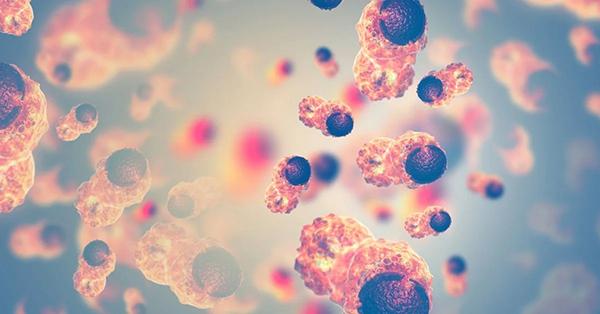
Researchers have shown that eating more protein from red meats can increase the risk of many health problems, including cancer.
Eat more protein. What disease? Eating a lot of red meat is linked to an increased risk of colon, breast, and prostate cancer.
Meanwhile, many other sources of protein work to reduce the risk of cancer. Scientists believe this difference is due to hormones, carcinogenic compounds, and fat found in meat.
Solution: Diverse sources of protein and limit the intake of red meats. This list of both protein and animal-rich foods will help you easily select the protein source for each of your meals.
Risk of heart disease
High protein foods like red meat and fatty milk will inadvertently provide you with a good amount of saturated fat and bad cholesterol. This leads to cardiovascular diseases.
Another study in 2018 found that long-term red meat consumption may increase trimethylamine N-oxide (TMAO), a chemical made from gut-associated with heart disease.
Solution: Should you eat more protein from red meat? Of course, eat just moderately.
Loss of calcium
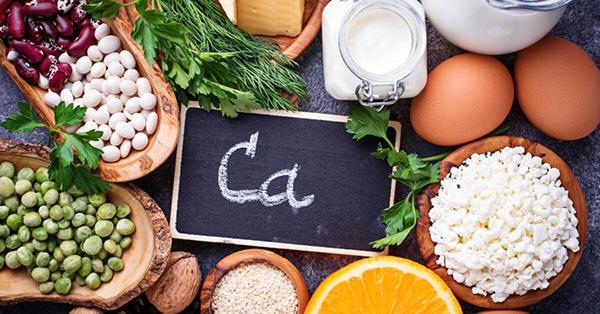
A 2013 review found a link between high protein intake and poor bone health. However, another assessment in the same year showed that this link was not convinced.
So, in the end, eating a lot of protein is bad for joints? This issue needs further research, and there is currently no final answer.
Solution: Because the answer has not been “finalized,” you do not need to worry. Just take good care of your bones; calcium supplements and exercise is okay.
Gout
Does eating a lot of protein cause gout? Eating a lot of protein causes gout is the myth of many people. For a long time, we have wrongly accused the protein.
The main cause of gout (or gut disease) is genetic or predisposing factors, causing the Purin synthesis process to increase.
Purin-rich foods (such as viscera, shrimp, crabs, meat, mushrooms, alcoholic beverages, etc.) are only illness agents. Also, there are high-protein foods but very little Purin, such as Whey Protein.
Solution: If you have gout or are at risk of gout, you should avoid eating meats, organs and replacing them with milk or Whey Protein.
Pimples
Eating lots of protein pimples is a problem when using Whey Protein, but not everyone suffers.
Whey Protein produces IGF-1, which increases acne production because it increases sebum production and clogged pores. So it is true that this is the loss of that.
Solution: If you have acne when drinking protein milk, then switch to eating natural foods rich in protein while thoroughly taking care of your skin.
How much protein is enough for each day?
We already know how eating a lot of protein affects people's health. So how much to eat in a reasonable amount?
The amount of protein needed each day depends on many factors, including weight, height, age, gender, activity, health status, diet, and other variables.
However, it is usually calculated based on body weight.
- Experts recommend a daily intake of 0.8g of protein per kilogram of body weight for most adults with minimal physical activity.
- If you exercise, exercise more than 1 hour a day, the amount of protein required is between 1.2-1.7g per kg of body weight.
- Heavy trainers or athletes can eat up to 3.5g of protein per kilogram of body weight without fear of side effects.
In general, experts believe that a healthy adult can consume 2g of protein per kg of body weight per day for a long time without any harm.
What Happens When You Eat Too Much Protein
How much protein you eat per day will give you an automated tool to calculate how much protein you should consume. You only need to enter your body's figures to get the most accurate number.
Finally, you need to know that it is difficult to get enough protein every day, not to mention excess. So if you still eat in moderation, normal, there is no need to worry too much.
The above are the harmful effects of excess protein and how to fix it. Note that if you are a trainer and still eat normally, there is a high chance that you will be deficient in protein, causing muscle growth and decline.
Supplement Whey Protein powder with a moderate amount, right for your body's needs. Please do not overdo it.
View more:
- Caffeine Effects on The Body – Know to use Wisely
- How to eat BBQ meat without gaining weight?
- Protein Benefits – Why is It an Important Protein for Weight Loss?
Hopefully, the information above has helped you gain some more knowledge about “what happens to excess protein in the body” and bring some small value. Please share this article if you feel it is useful. Thanks!
